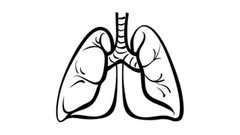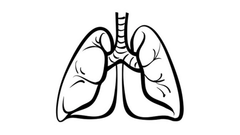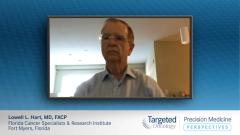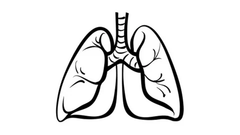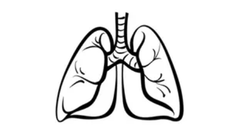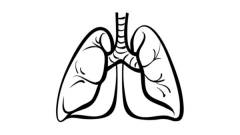
EP. 2A: Treatment Challenges and Unmet Needs in Extensive-Stage Small Cell Lung Cancer
Dr. Jared Weiss of the University of North Carolina Lineberger Comprehensive Cancer Center considers treatment challenges and unmet needs in the current standard-of-care management of extensive-stage small cell lung cancer.
Episodes in this series

In my opinion, the unambiguously greatest challenge in treating extensive-stage small cell lung cancer is [the] lack of therapeutic efficacy. The duration of control that we get is grossly inadequate, [and] our survival is grossly inadequate. Along the way, our patients suffer not just from the [adverse] effects of what we do to them—although I would list that as another really important unmet need—they also suffer from the effects of our therapy, so we need therapies that are more effective. Ideally, curing some or really all patients, we need treatments that are less toxic.
First-line treatment of extensive-stage small cell lung cancer changed dramatically in 2019 with the approval of atezolizumab. For a very long time until then, the evolution of frontline regimens never improved survival. Enter IMpower-133: This was a randomized study of carboplatin and etoposide, plus either placebo or the PD-L1 inhibitor atezolizumab. We have an improvement in progression-free survival, we have an improvement in overall survival, and [there was] not much extra toxicity. There were some immune-related adverse events that you see with the addition of atezolizumab, of course, but looking at the safety profile globally, [there was] not a terribly big increase.
The same was pretty much replicated in 2020 in the CASPIAN study with the addition of the PD-L1 inhibitor durvalumab to platinum and etoposide. The addition of the PD-L1 inhibitor, the approved ones being atezolizumab or durvalumab, to standard platinum and etoposide improved survival in extensive-stage small lung cancer. This, of course, has changed the standard of care. In the US and other countries that can afford it, the absolute unambiguous standard of care for patients eligible for a checkpoint inhibitor is platinum, etoposide, and a checkpoint inhibitor.
If you look at the toxicity tables of the regimens that have defined our standard of care. If you look at IMpower-133, if you look at CASPIAN, if you look at the phase I basket results of lurbinectedin, [and] if you look at any of the dozen or so topotecan trials, what you can see is that the majority of patients are experiencing adverse events. The most common of these are myelosuppressive events, which until very recently we couldn't do a whole lot about.
For years, we haven't thought that much about myelosuppression other than maybe neutropenia because we had a bit of a learned helplessness. This was the cost of business to giving cytotoxic drugs, and we started to say, "Well of course, you get tired. Of course you get anemic." It was a learned helplessness, but that changed some with the introduction of effective drugs to protect neutrophils. The [drugs] had their own imperfections, but to me, trilaciclib is important not only for the drug itself, which I am using in every eligible [patient with] small cell [lung cancer], but [also] for the way we think about supportive care for blood counts in general. We should be thinking about myelosuppression again now that we can actually do something about it.



